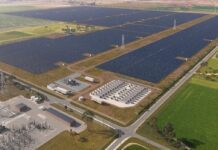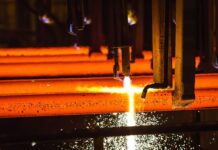
The Australian Government’s Capacity Investment Scheme aims to enhance local participation in renewable energy, but concerns over unclear criteria raise doubts about its effectiveness in stimulating domestic manufacturing and job creation, Weld Australia said in a news release.
Geoff Crittenden, CEO of Weld Australia, has voiced apprehensions, stating, “In its current form, the Capacity Investment Scheme will not create a single local job. The Scheme will not add a single dollar to Australia’s economy. It offers Australian manufacturing no future.”
Crittenden emphasised the necessity for stringent, enforceable local content stipulations to be integrated into the evaluation of Capacity Investment Scheme tenders.
He asserted that contracts should possess the requisite authority to ensure compliance with these requirements.
In particular, Weld Australia advocates for the allocation of considerable merit weighting to bidders who commit to utilising Australian fabricated steel in specified percentages.
Specifically, they propose that tenderers offering the following levels of local content should receive preferential treatment: over 50 per cent for Onshore Wind Towers, more than 40 per cent for Offshore Wind Towers, and exceeding 60 per cent for Solar Farms, Monopole Transmission Towers, and Lattice Transmission Towers.
“Australian businesses have long advocated for specific, measurable local content requirements in government contracts. However, tangible examples of local content procurement policies are yet to materialise in Australia,” Crittenden remarked.
He pointed out the limitations of existing initiatives such as the Buy Australian Plan and the Australian Industry Participation scheme, attributing their shortcomings to ambiguous specifications, inadequate enforcement mechanisms, and loopholes facilitating non-compliance.
Consequently, these schemes have failed to foster a conducive environment for local businesses to secure government contracts, hindering the growth potential of the manufacturing sector.
Crittenden warned that without decisive action, the Capacity Investment Scheme risks replicating the ineffectiveness of its predecessors.
He urged the Australian Government to embed specific, enforceable local content prerequisites within the scheme’s evaluation criteria to bolster domestic manufacturing capabilities in the renewable energy sector.
“This will fortify domestic clean energy supply chains, boost investor confidence, and cultivate a skilled workforce for the energy transition, positioning Australia as a global renewable energy leader,” said Crittenden.


















